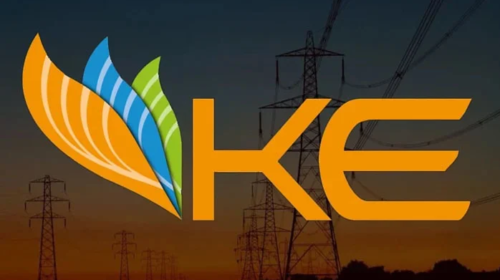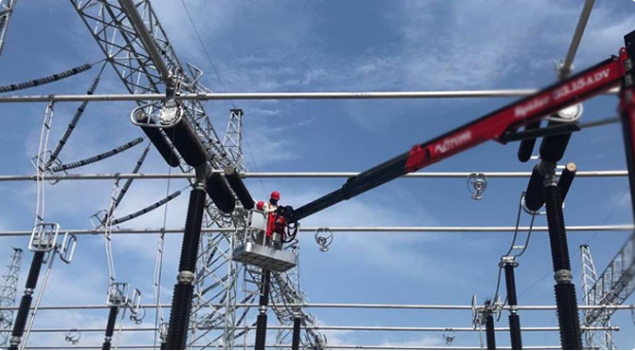By Muhammad Azfar Ahsan
In this opinion piece, the writer presents a powerful analysis
of how a single regulatory decision has shaken Karachi’s
energy foundation, undermined investor confidence, and
damaged Pakistan’s privatization process, jeopardizing the
nation’s economic stability. It is a compelling call for data
driven reform, institutional credibility, and responsible
governance to restore trust and secure Pakistan’s future
Karachi is the largest city of Pakistan, and its proud economic nucleus, that fuels
the nation’s fiscal, industrial, and commercial lifelines. K-Electric (KE), in turn,
serves as the artery that sustains this economic heart. This equation is self-evident
and requires no elaborate justification. A city of nearly 30 million people,
contributing close to half of Pakistan’s tax revenue, cannot afford instability in its
power supply. Yet, unlike other provinces that receive preferential infrastructure
attention, Karachi continues to shoulder the demands of trade, technology, and
rapid urban growth largely on its own. Despite this neglect, the city remains
remarkably resilient, open, productive, and indispensable to Pakistan’s economic
continuity.
To undermine the interests of a city that contributes boundlessly while demanding
so little is both economically irrational and strategically myopic. With a single
regulatory stroke, years of structural reform and painstaking institutional progress
have been dismantled. What has been undone overnight is not just a tariff
structure, but the very credibility of Pakistan’s energy governance and privatization
narrative.
As an active citizen of Karachi, I have personally witnessed the darkest days of the
old Karachi Electric Supply Corporation (KESC) era, when the city was crippled by
load-shedding, theft, and mismanagement. The subsequent transformation
remains a classic case study and a valuable reference for the privatization of other
DISCOs across Pakistan. It stands as proof that reform, transparency, and private
sector efficiency can truly deliver.
The National Electric Power Regulatory Authority’s (NEPRA) decision to
retroactively reduce KE’s multi-year tariff by PKR 7.6 per unit represents a profound
policy misstep, one that threatens to unravel Karachi’s fragile energy equilibrium
and, by extension, Pakistan’s broader economic stability. This reversal risks
resurrecting the darkness that once paralyzed Karachi.
The irony is that NEPRA has framed this decision as relief for consumers, yet
Karachi’s citizens will not see any reduction in their bills. In fact, bills are set to rise
due to revised fuel cost adjustments embedded in the new decision. So where do
these “savings” go? – straight into the federal ledger! The government has
effectively withdrawn the subsidies provided to Karachi’s electricity consumers
and transferred the fiscal burden entirely onto KE’s balance sheet. This has created
a financial crater, estimated at over PKR 200 billion, for just the past two years. Do
we call this ‘discipline’ or a fiscal sleight of hand? This move reallocates resources
away from Pakistan’s most productive economic zone to destinations far less
capable of generating returns.
Quoting the CEO of KE, 2.5 years of rigorous regulatory engagement had led to a
modest profit of PKR 4.13 billion in September 2025, a mere 3.56% return on equity,
far below commercial benchmarks but accepted in good faith for the stability it
promised. Having the distinction of being the only power company that does not
contribute to circular debt, it now faces a PKR80 billion loss. A financially viable
enterprise serving 30 million people has been rendered technically insolvent by
regulatory fiat. A mutually agreed-upon Multi-Year Tariff (MYT) that took over two
years to build has been revised unjustifiably, forcing the organization to reconsider
its future operations.
The company’s 7-year investment plan, requiring USD 2 billion for critical
infrastructure, transmission networks, generation fleet maintenance, and cyber
security upgrades, has collapsed along with lender confidence Advanced discussions with multilateral institutions for long-term financing will now
stall. Even if these decisions are reversed, the damage to Pakistan’s regulatory
credibility may prove irreparable.
To reinforce the impact of privatization, allow me to recount that technical losses
dropped from 43% to 20%, generation efficiency improved from 30% to 43%, and
the cost savings to the national exchequer from these improvements alone ran into
hundreds of billions. That progress now hangs by a thread. If KE cannot secure
financing, if infrastructure investments halt, and if maintenance is deferred due to
financial distress, Karachi will slide back toward the darkness that once defined it.
Saudi Arabia and other Gulf investors who have shown serious interest in
Pakistan’s energy sector, seeing potential in DISCO privatization and
infrastructure modernization, are not happy and have shown their serious
disappointment. In fact, have now filed a legal notice of USD 2 billion against
Pakistan. What message is NEPRA conveying? Are these regulatory frameworks
fluid? Can profitable enterprises be rendered insolvent overnight through
retroactive policy changes? Are investment returns subject to arbitrary revision
years after deals are concluded? This serious escalation not only damages
Pakistan’s reputation as an investment destination but also undermines ongoing
efforts to attract Foreign Direct Investment (FDI).
Moving to the bigger picture, my question is to the stakeholders who continue to
promote the idea of converting State-Owned Enterprises (SOEs) into private
entities for a stronger economy. The KE case was supposed to be Pakistan’s
privatization success story, proof that reform works, that private-sector efficiency
can transform SOEs, and that international capital can find stable returns in
Pakistani infrastructure. Instead, it is becoming a cautionary tale that will echo in
every future negotiation with potential investors.
NEPRA’s change of heart raises fundamental questions that demand transparent,
public answers. The issues are significant, whether it is the need for energy sector
reforms, DISCO privatization, or foreign investment in infrastructure. All arguments
aside, we must ensure that Karachi’s powered economy must grow consistently for
Pakistan to reposition itself as a regional hub and, eventually, a global economic
power. But we cannot achieve these goals through opaque, retroactive regulatory
reversals that destroy investor confidence and institutional credibility.
That progress is now under threat from policymaking that appears linear at best
and reckless at worst. We cannot afford governance that creates hundred-billion
rupee financial holes with midnight announcements and no consultation.
At this critical juncture, I humbly appeal to the leadership of the State, President of
Pakistan Asif Ali Zardari, Prime Minister Shehbaz Sharif, Deputy Prime Minister
and Foreign Minister Senator Muhammad Ishaq Dar, Chief of Army Staff & Field
Marshal Syed Asim Munir, Finance Minister Senator Muhammad Aurangzeb, and
Power Minister Sardar Awais Ahmad Khan Leghari, to urgently intervene in this
matter. Their collective wisdom and leadership are essential to restore investor
confidence, protect Karachi’s economic engine, and safeguard Pakistan’s energy
future.
At the same time, I strongly recommend the civilian and military leadership engage
the best neutral experts to independently assess the factual situation, supported by
credible data. I believe that some individuals may be misleading the leadership
because of their vested interests and insecurities. They are manipulating matters to
serve personal agendas rather than national interest. A neutral and data-driven review is the only way forward to uncover facts and protect Pakistan’s credibility.
NEPRA and the federal government have a lot to answer for, and I hope they do so
in the interest of the 30 million Karachi residents whose lives depend on reliable
electricity to make this country progress. Let us not forget that the remaining 220
million people of Pakistan also depend on Karachi’s progress to fuel their
aspirations.
Karachi works for Pakistan, and KE enables that. And above all arguments (for
sanity’s sake) we must ensure that KE proves to be the best-case study for Saudi
investment in Pakistan. We have a lot to gain from that.
Muhammad Azfar Ahsan is a public policy advocate, business strategist, and
Pakistan’s former Minister for Investment and Chairman, Board of Investment,
Government of Pakistan. He writes regularly on economic reform, governance, and
institutional development







